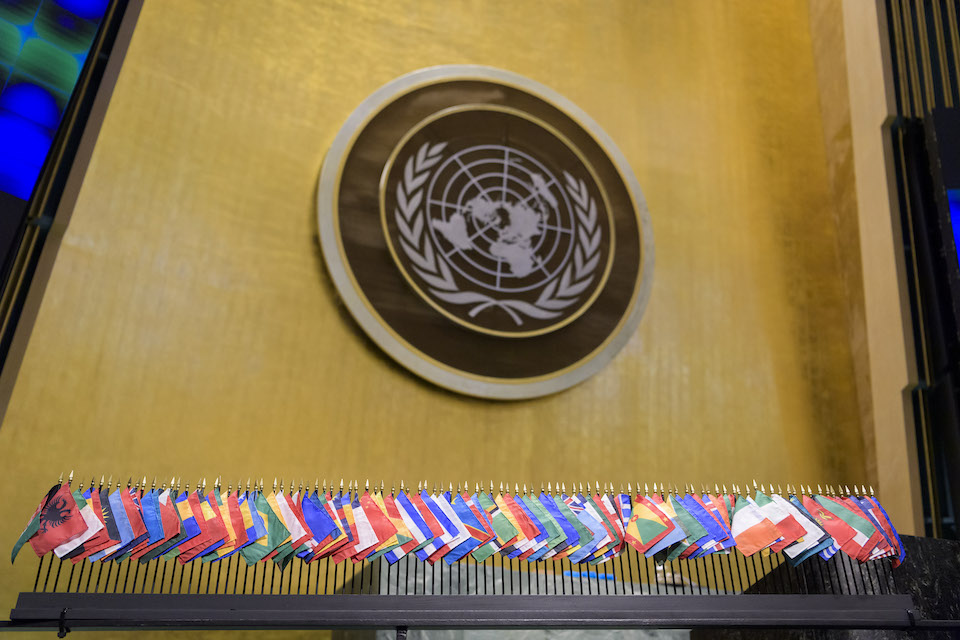We must ensure civil society and human rights defenders can engage with the UN without fear of reprisal
Cross-regional statement on behalf of the United Kingdom and 79 other countries on reprisals.

Delivered by Ambassador Barbara Woodward, UK Permanent Representative to the UN at the Interactive Dialogue with the Special Rapporteur on the situation of human rights defenders.
I have the honour to deliver this cross-regional statement on behalf of the United Kingdom and 79 other countries.
UN member states have repeatedly recognised the importance of civil society and human rights defenders. They are crucial in supporting our work at the UN. They inform and enrich our decision-making and ensure that our decisions at the UN have an impact on the ground. We therefore condemn any act of intimidation or reprisal, whether online or offline, against individuals and groups who cooperate, seek to cooperate, or have cooperated with the UN.
We call on States to prioritise and support the meaningful participation of civil society at the UN. This involves taking action against intimidation and reprisals, including through robust investigations, to ensure accountability. The Security Council has encouraged States to create a safe and enabling environment for those who protect and promote human rights, especially women, to allow them to conduct their work independently, and to address threats and violence against them. States should inform all relevant actors of all incidents of reprisals, whether perpetrated by State or non-State actors, against individuals and/or groups in their countries.
We also urge States to cooperate with the Assistant Secretary-General for Human Rights, Ilze Brands Kehris, in fulfilling her mandate to address reprisals and ensure a coordinated UN response. We need a clearly-defined and coordinated approach to respond effectively to the growing issue of intimidation and reprisals. We need all States and UN entities to take proactive steps and commit to sustained follow-up and support for victims. We welcome the Secretary-General’s most recent annual report on this issue, as well as the Human Rights Council resolution adopted last week which ensures that this report is presented annually to the General Assembly from next year. We share the Secretary-General’s concerns on the growing number and patterns of reprisals globally and the disproportionate impact on certain groups.
The Covid-19 pandemic has exacerbated existing challenges for civic space. The pandemic has only brought new challenges and risks, including:
- Increased surveillance and hacking;
- The rise of online violence, particularly against women and girls; and
- The use of emergency measures to unduly restrict or hinder access and communication with the UN or other fora.
The cases documented in the SG’s annual reports represent only the tip of the iceberg. We call for improvements in data collection, analysis, and documentation of cases, to address existing gaps in the reports, such as climates of fear conducive to self-censorship, and to inform and improve policies and practices on intimidation and reprisals.
The UN, as a global community, must be an example of best practice. We must ensure all civil society organisations and human rights defenders can engage the UN without fear of intimidation or reprisal. They dedicate their lives to serve their communities, some even risking their lives - they should not face further retaliation for engaging the international community.
List of signatories:
- Afghanistan
- Antigua and Barbuda
- Albania
- Andorra
- Argentina
- Australia
- Austria
- Bahamas
- Belgium
- Belize
- Bosnia & Herzegovina
- Bulgaria
- Cabo Verde
- Canada
- Chile
- Colombia
- Costa Rica
- Croatia
- Cyprus
- Czech Republic
- Denmark
- Dominican Republic
- Ecuador
- El Salvador
- Estonia
- Fiji
- Finland
- France
- Germany
- Georgia
- Greece
- Guatemala
- Honduras
- Hungary
- Iceland
- Ireland
- Italy
- Japan
- Latvia
- Lebanon
- Liberia
- Liechtenstein
- Lithuania
- Luxembourg
- Malta
- Marshall Islands
- Mexico
- Moldova
- Monaco
- Mongolia
- Montenegro
- Nauru
- Netherlands
- North Macedonia
- Norway
- Palau
- Panama
- Paraguay
- Peru
- Poland
- Portugal
- Republic of Korea
- Romania
- Samoa
- San Marino
- Seychelles
- Slovakia
- Slovenia
- Spain
- Sweden
- Switzerland
- Timor-Leste
- Tunisia
- Turkey
- Tuvalu
- Ukraine
- United Kingdom
- USA
- Uruguay
- Vanuatu
- And the EU